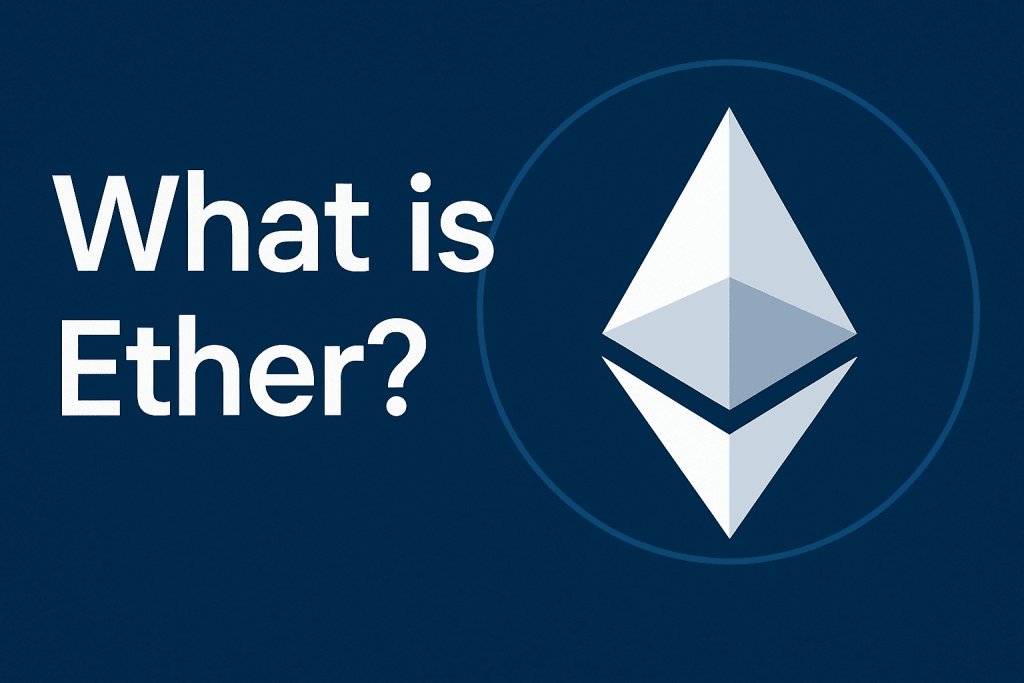What is Ether?
Ethernet is a public blockchain platform using blockchain technology.
Ethernet has EVMs to run smart contracts. (A smart contract is a program developed with Solidity)
Ether has its own tokens as well.

PS1:
Ether is a public blockchain network with a broad vision. The designers of Ether realized that if you build a public blockchain network, you can do more than just track digital currencies: you can run a global public computer, always open to the world.
That’s what Ethernet is: it’s a global network capable of running programs on an Ethernet Virtual Machine (EVM).
Programs are written for EVMs in a language called Solidity, and the network uses a cryptocurrency called Ether (or ETH, pronounced “eeth”) to compensate the people who maintain the network, as well as to act as tokens of value for transactions on the network.
PS2:
A blockchain network using blockchain technology.
Also a cryptocurrency (developed token ETH).
Also an open source public blockchain platform. (We can develop on it. We don’t need to build a platform, we can develop directly on it, there is an EVH virtual machine, we can run our program on the virtual machine. If we build our own blockchain platform, it involves a lot of technology).
PS3:
In terms of transformational programming language, Ether is a super-sized computer that everyone in the world can use.
We can develop programs to run on it, this program is a smart contract, using solidity.
solidity has state variables and global state, local variables can be understood as the state of the current program after the initialization of the variables saved in the computer memory, also called the state of the chain.
Global variables are the global methods and variables that the supercalculator provides me with, such as time.
Local variables are understood to be internal temporary variables within the program, the function executes itself, and is not pure after the function is called.